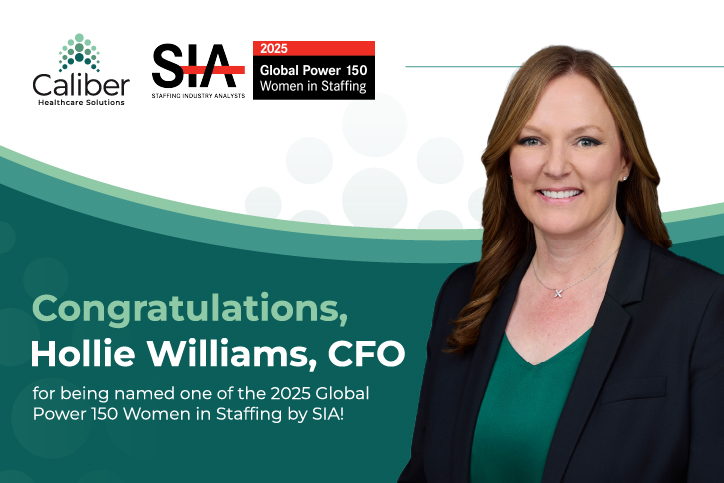
As healthcare staffing becomes more complex, technology has stepped in to help facilities manage growing networks of agency partners and contingent providers. One of the most important tools in this effort is a VMS, or Vendor Management System.
But what exactly is a VMS in healthcare—and how can it support a smarter, more efficient approach to staffing?
Whether you’re managing multiple vendors or just beginning to explore workforce platforms, this article breaks down the essentials: what a VMS does, how it works, and why it plays a key role in today’s healthcare staffing strategy.
A Vendor Management System (VMS) is a software platform that centralizes how healthcare organizations manage their contingent workforce—typically contract, per diem, or locum tenens providers—and the staffing agencies that supply them.
Rather than coordinating through scattered emails and spreadsheets, a VMS brings everything into one place. From posting open shifts to reviewing submissions, tracking credentialing, approving time, and analyzing performance, the VMS acts as the operational backbone of modern contingent staffing.
Think of a VMS as the command center for vendor-based staffing. It gives healthcare teams the ability to coordinate multiple partners, maintain compliance, and make faster decisions—all from a single platform.
A VMS is the technology. An MSP (Managed Service Provider) is the service layer that often uses that technology on your behalf.
In other words, while a VMS helps your team manage vendors more efficiently, an MSP can take that work off your plate entirely, handling coordination, communication, and strategy through a combination of services and software.
Many healthcare organizations use both: the MSP manages the staffing process, while the VMS powers the workflow behind it. But they’re not the same, and you don’t need an MSP to use a VMS.
At a functional level, a healthcare VMS supports every stage of the contingent staffing lifecycle:
This process often plays out across multiple specialties and staffing partners. The VMS helps ensure consistency so nothing falls through the cracks.
Healthcare leaders turn to VMS platforms for a few key reasons:
When used effectively, a VMS doesn’t just create order, it creates space for your team to focus on what matters most: delivering care.
Some healthcare VMS solutions are built to be vendor-neutral, meaning they’re designed to work with any staffing agency, not just those tied to the platform provider.
This approach gives healthcare systems greater flexibility and control—but it also places more responsibility on internal teams or their MSP partner to maintain oversight. In contrast, proprietary VMS platforms may be tied to a single staffing vendor, offering a more curated but less flexible experience.
The right fit depends on your organization’s size, goals, and staffing complexity.
Beyond day-to-day operations, a VMS offers insight into the bigger picture of workforce planning.
Over time, usage data from the platform can help identify patterns, such as:
With this kind of intelligence, healthcare leaders can shift from reactive staffing to proactive planning, making smarter decisions that balance cost, quality, and continuity.
If you're considering a VMS, here are a few things to look for:
The best VMS is one your team will actually use, and one that supports your broader workforce goals.
Even the best technology needs the right strategy behind it. Learn more about how Caliber supports healthcare leaders like you. Contact a member of our team today.
.png)
Posted on
February 3, 2026
Caliber Healthcare Solutions, a leading healthcare staffing agency, announced today that it has achieved a rare and significant milestone by winning ClearlyRated’s 2026 Best of Staffing® Client, Talent, and Employee Awards for Service Excellence. This marks the first time in company history that Caliber has earned the Employee Satisfaction Award, completing a first-ever, three-award sweep that reflects excellence across every stakeholder group the firm serves.

Posted on
October 9, 2025
Caliber is proud to announce that our Chief Financial Officer, Hollie Williams, has been named to the Staffing Industry Analysts (SIA) 2025 Global Power 150 Women in Staffing list. This prestigious recognition honors women who are shaping the future of the staffing industry through innovation, leadership, and measurable impact.

Posted on
August 14, 2025
The OB/GYN workforce is at a pivotal moment. Demand is growing, especially in underserved regions. Meanwhile, retirements, burnout, and legislative pressure continue to shrink the supply of practicing physicians.
.png)
Posted on
February 3, 2026
Caliber Healthcare Solutions, a leading healthcare staffing agency, announced today that it has achieved a rare and significant milestone by winning ClearlyRated’s 2026 Best of Staffing® Client, Talent, and Employee Awards for Service Excellence. This marks the first time in company history that Caliber has earned the Employee Satisfaction Award, completing a first-ever, three-award sweep that reflects excellence across every stakeholder group the firm serves.
.png)
Posted on
January 18, 2026
During National CRNA Week 2026 (January 18–24), we recognize and celebrate CRNAs for their critical role in modern healthcare and their lasting impact on patient outcomes nationwide.

Posted on
October 9, 2025
Caliber is proud to announce that our Chief Financial Officer, Hollie Williams, has been named to the Staffing Industry Analysts (SIA) 2025 Global Power 150 Women in Staffing list. This prestigious recognition honors women who are shaping the future of the staffing industry through innovation, leadership, and measurable impact.
.png)
Posted on
February 3, 2026
Caliber Healthcare Solutions, a leading healthcare staffing agency, announced today that it has achieved a rare and significant milestone by winning ClearlyRated’s 2026 Best of Staffing® Client, Talent, and Employee Awards for Service Excellence. This marks the first time in company history that Caliber has earned the Employee Satisfaction Award, completing a first-ever, three-award sweep that reflects excellence across every stakeholder group the firm serves.
.png)
Posted on
January 18, 2026
During National CRNA Week 2026 (January 18–24), we recognize and celebrate CRNAs for their critical role in modern healthcare and their lasting impact on patient outcomes nationwide.

Posted on
August 14, 2025
The OB/GYN workforce is at a pivotal moment. Demand is growing, especially in underserved regions. Meanwhile, retirements, burnout, and legislative pressure continue to shrink the supply of practicing physicians.